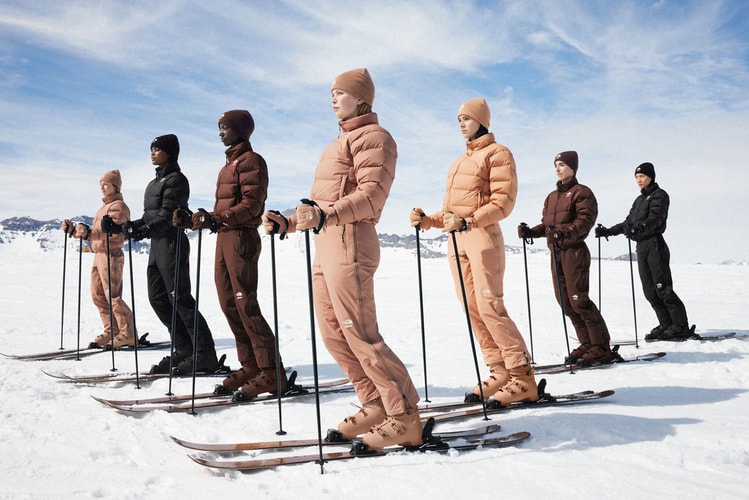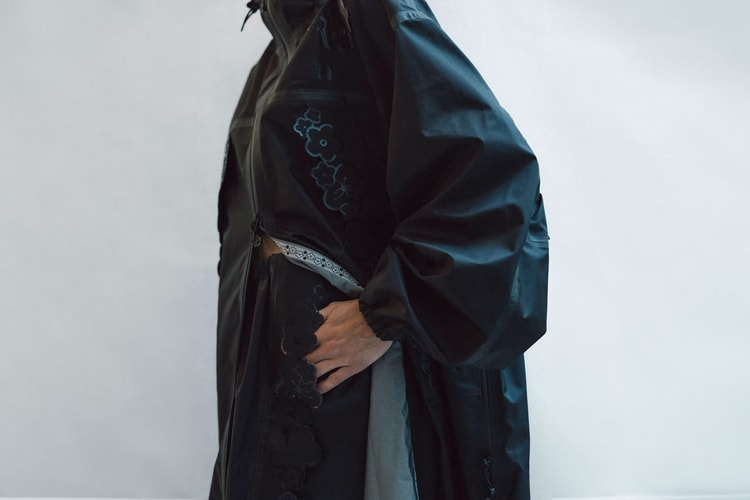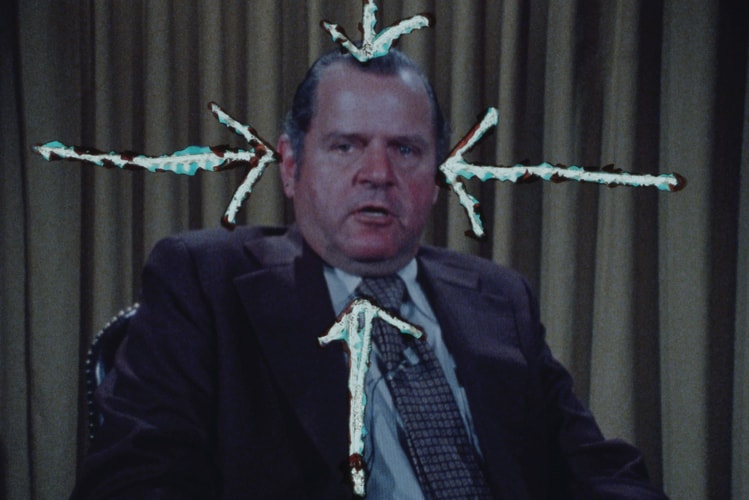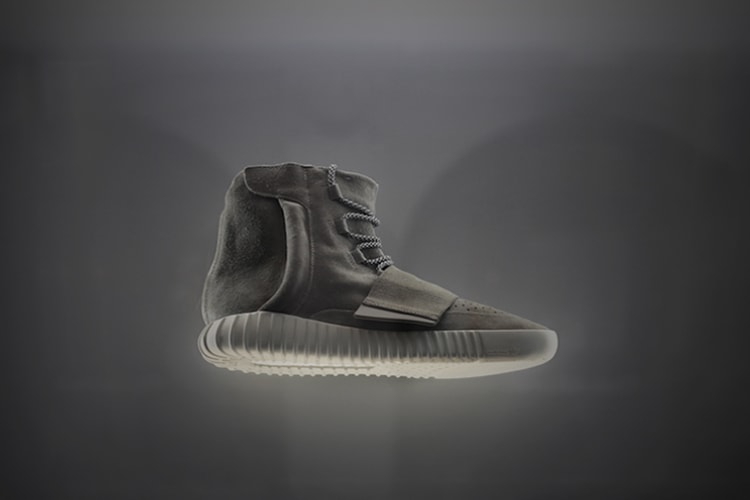GQ Takes An Inside Look at the North Korean Film Festival
It seems unavailing, if not petty, that a movie might’ve caused one of the tenser international
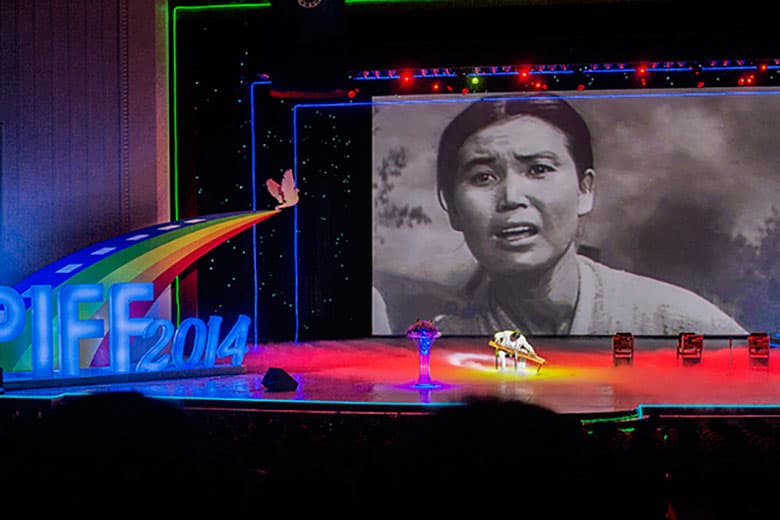
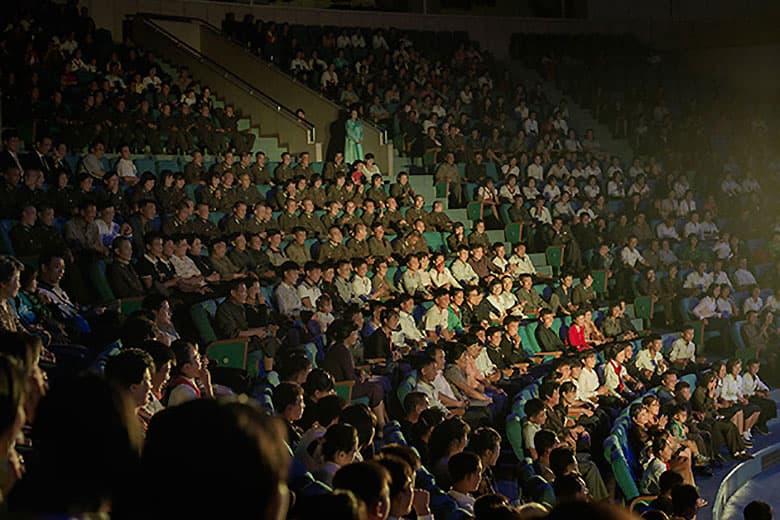

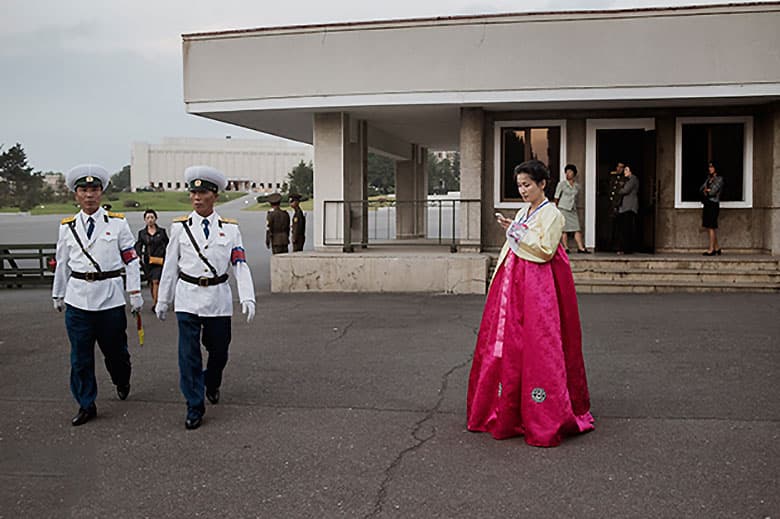
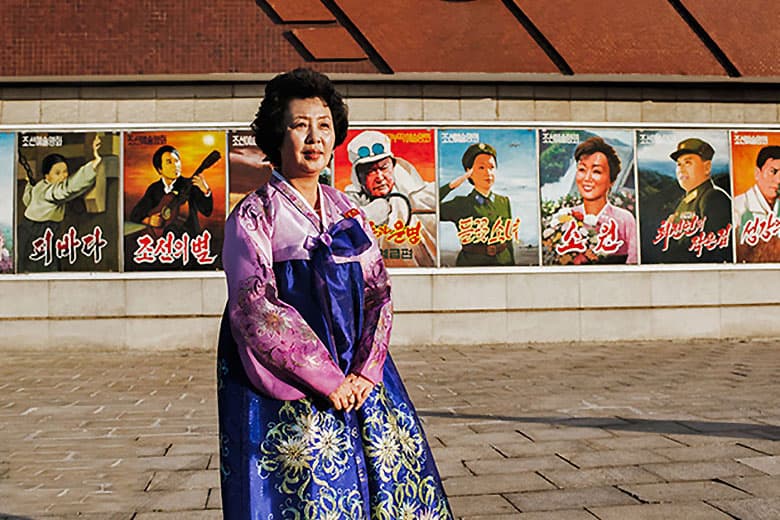
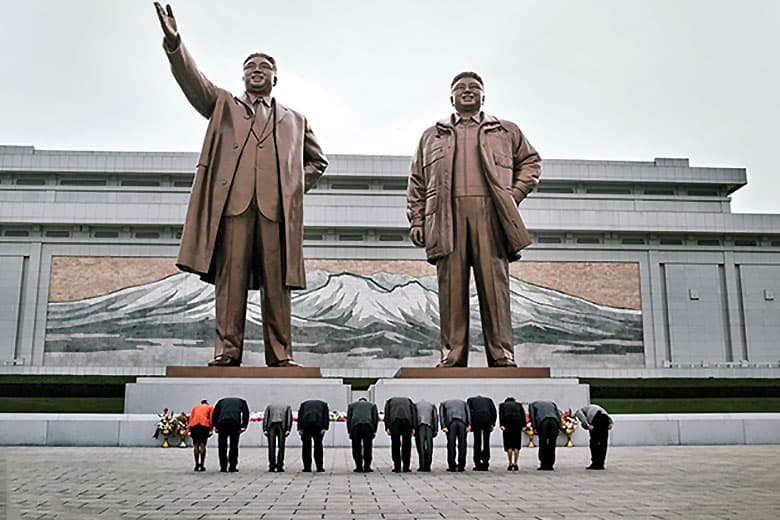
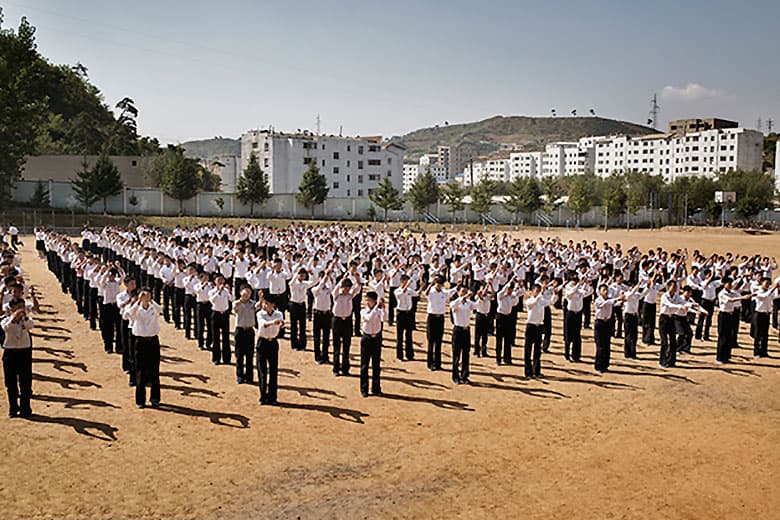
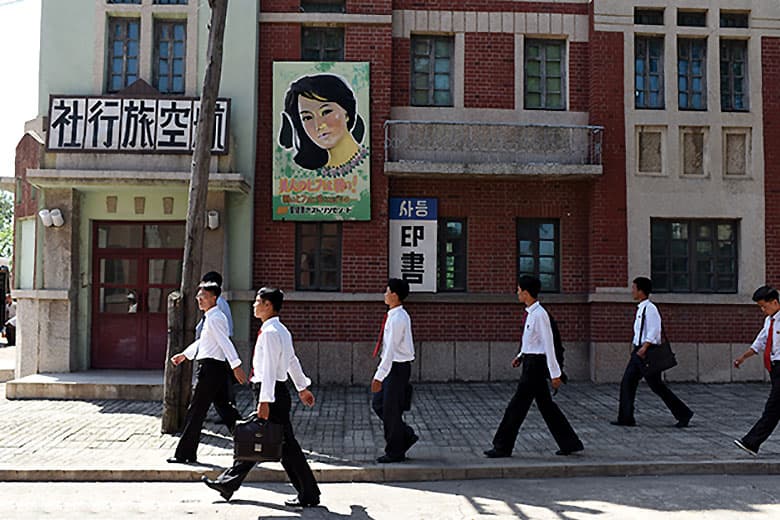
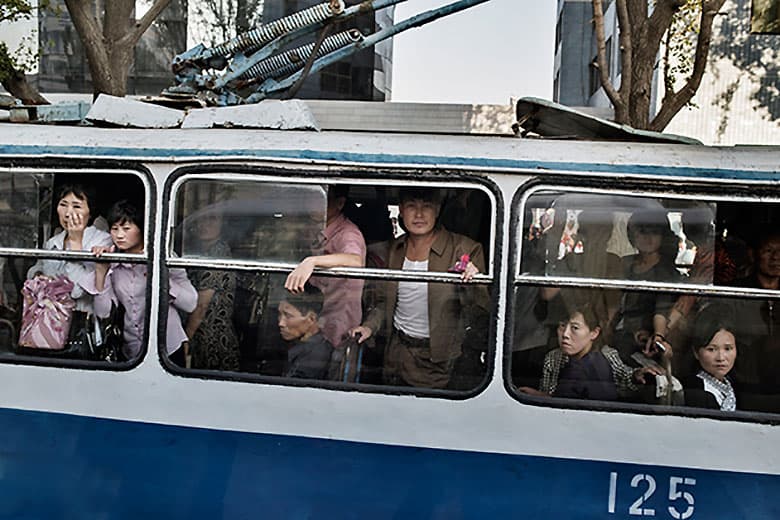
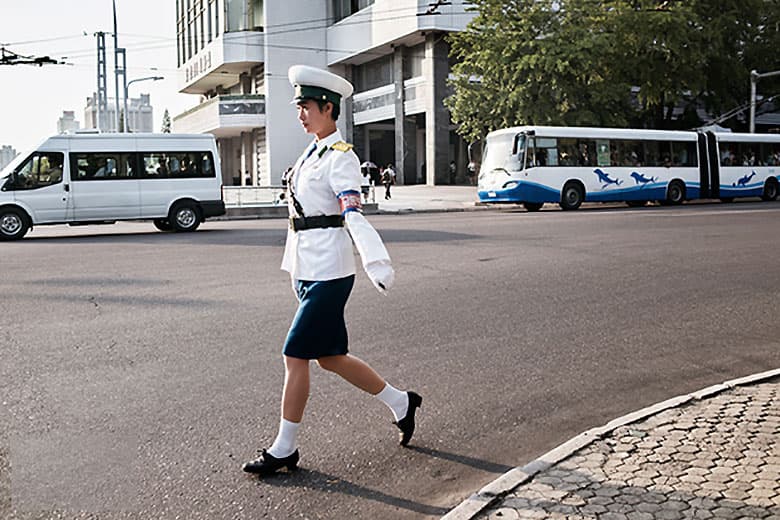
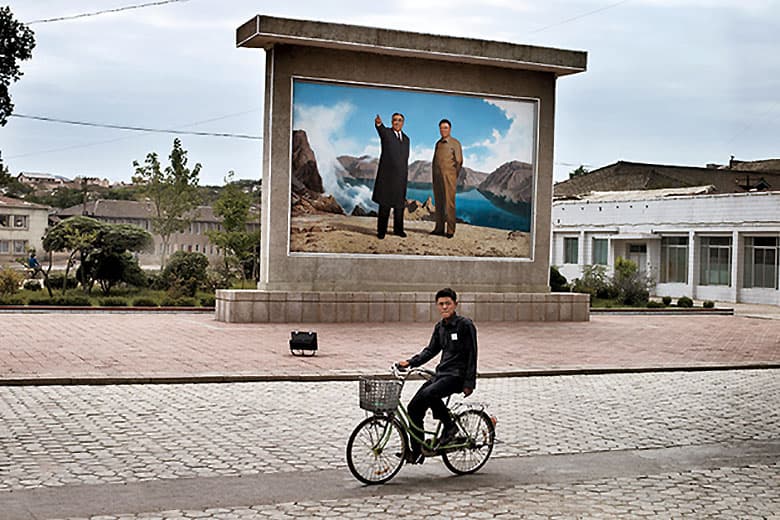
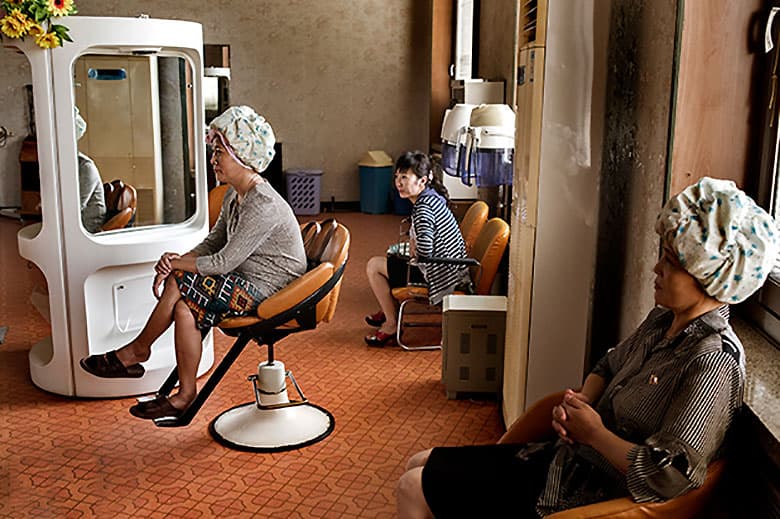
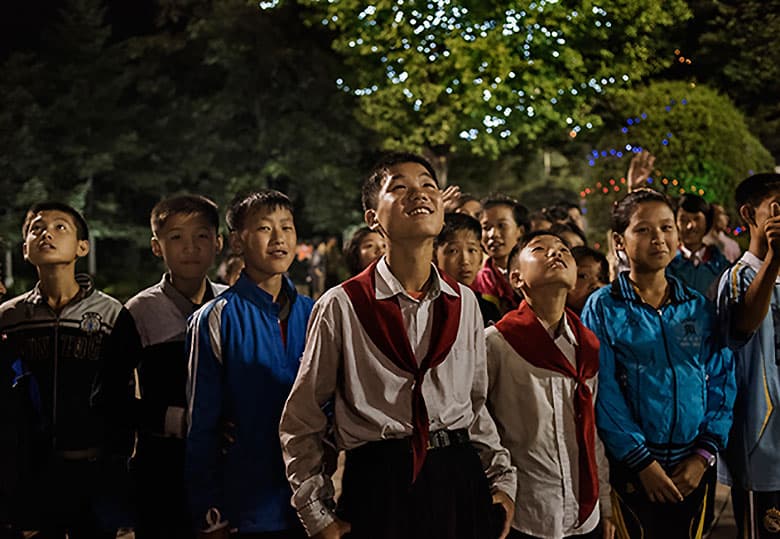
It seems unavailing, if not petty, that a movie might’ve caused one of the tenser international disputes in recent years – a Seth Rogen film, at that – but The Interview stirred quite the controversy. Broad-chested in rhetoric, Americans quickly advocated the film as exercising the very brand of Freedom® the country was founded upon; it was argued a farce – and who are we (as humans, of course), after all, if we cannot laugh at ourselves? Well, as it turns out, you might just live in North Korea: home of the world’s most oppressive regimes but also the proud host of a staunch cinematic tradition. The biennial Pyongyang International Film Festival was recently held, with GQ maverick Mitch Moxley behind the keyboard to write one of the more compelling travelogues this side of democracy – “The Reddest Carpet: I Survived The Korean Film Festival.” Enjoy a key excerpt from the piece below, then head here for the full article.
I’m standing below the mural, staring gape-jawed at the Kims as attendees file into the auditorium. Swirling around me are military men in olive uniforms and half-moon hats, high-ranking government officials with jet-black hair, and hardworking citizens of the capital decked out in fine suits and traditional dresses that look like Christmas trees. There’s also an oddball assortment of foreign delegates from countries as far-flung as Myanmar and Iran.
The communist government of Kim Jong-il’s apple-cheeked son, Kim Jong-un, has allowed exactly eight tourists to attend the festival. I am one of them. We’re a collection of curious film buffs who have paid a group called Koryo Tours about $2,000, on top of airfare to and from Beijing, for the privilege of visiting the secretive Democratic People’s Republic of Korea.
It’s a strange time to be in the country: Just three days ago, a 25-year-old American named Matthew Miller was sentenced to six years of hard labor for tearing up his tourist visa upon arrival because of a “wild ambition,” he supposedly said, to see a North Korean prison. Meanwhile, two other Americans are languishing in the country’s penal system for alleged Christian proselytizing. This is all while Seth Rogen and James Franco are preparing to promote The Interview, the Kim Jong-un assassination comedy that will ultimately provoke North Korean sympathizers to launch an epic cyber-attack on Sony Pictures, nearly forcing the studio to abort the film’s release—which shouldn’t have been surprising, for this is a country that treats cinema as a matter of life and death.



